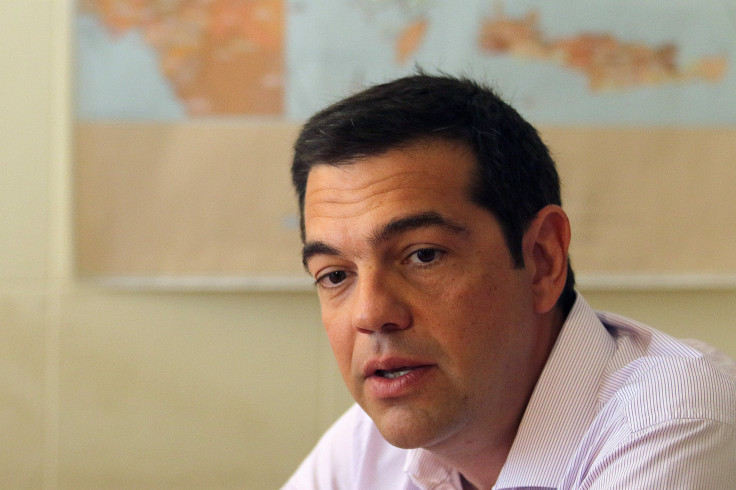Greece Secures A Bailout Deal With Its Creditors. What Comes Next?

Greece and its European creditors have reached an agreement over the terms of the country's third major bailout, raising hopes that the Greek government will make an Aug. 20 debt payment to the European Central Bank and remain in the eurozone.
The initial accords, announced by the Greek government and confirmed by the European Union's executive arm, come after two weeks of detailed negotiations between Greek ministers of economy and finance and their European counterparts. The deal would free up loans amounting to 85 billion euros ($94 billion) in exchange for structural and political reforms in Greece.
But what has been hammered out after a 20-hour session early this week is just a "technical-level agreement," said Annika Breidhardt, a spokeswoman for the European Commission, at a news conference. The accords recognize Greece's dire economic situation, lowering proposed targets for growth and surplus creation. But some prior actions -- reforms Athens must pass to unlock funding -- have yet to be fully defined.
"What we don't have at the moment is a political agreement," Breidhardt said.
Clearing that hurdle is just one step toward a full deal. Here are the other important hurdles Greece and its European partners face in the immediate future.
Prior Actions
There's still some daylight between the positions of Greek and other eurozone finance ministers on several matters related to Greece's prior actions, including proposed reforms surrounding household foreclosures, a 50 billion euro privatization program and opening of Greece's energy markets. Negotiators are expected to tackle these topics in the coming days.
That's just finance ministers from the 19 nations in the eurozone. But representatives from the 28 member states of the EU will take part in a call Tuesday to plan backstop measures if the deal isn't hammered out by Friday, Financial Times reports.
Parliamentary Votes
Once a final deal is inked, Germany's Bundestag and other European parliaments will have their say. And passage isn't a foregone conclusion, particularly in Germany, where wide swaths of the populace have rejected making further loans to a foundering Greece. Jens Spahn, a deputy to Germany's hard-line Finance Minister Wolfgang Schauble, has cautioned that the deal will be carefully considered in Berlin.
And Athens has to muster the strength to swallow another bitter pill of austerity, after two rounds of previous cost-cutting and structural reform legislation almost cost the ruling Syriza party its coalition majority in parliament.
Syriza Challenge
Long-simmering tensions within the left-wing Syriza government, which won an electoral victory by promising an end to austerity, could come to the fore in September, when the party is set to hold an emergency congress. The reckoning could prove the greatest challenge yet to Prime Minister Alexis Tsipras, who has maintained wider popularity but struggled to maintain party cohesion through successive rounds of bailout concessions.
Stress Test
The European Central Bank will release the results of stress tests being conducted this month on Greek banks, which have had a disastrous few months. Greece was forced to close its banks in late June as liquidity from the central bank dried up. The move brought the economy crashing to a halt and scenes of hourslong waits at ATMs became commonplace. The banks reopened, with strict capital controls, three weeks later.
But it remains unclear how solvent Greece's four major banks really are. Some 40 billion euros ($43 billion) have flowed out of Greece just this year, leaving lenders light on cash. The stress tests may shed light on whether the $94.4 billion bailout currently in the works -- a sum that was already adjusted upwards early in negotiations -- will adequately cover Greece's shortfalls.
© Copyright IBTimes 2024. All rights reserved.






















